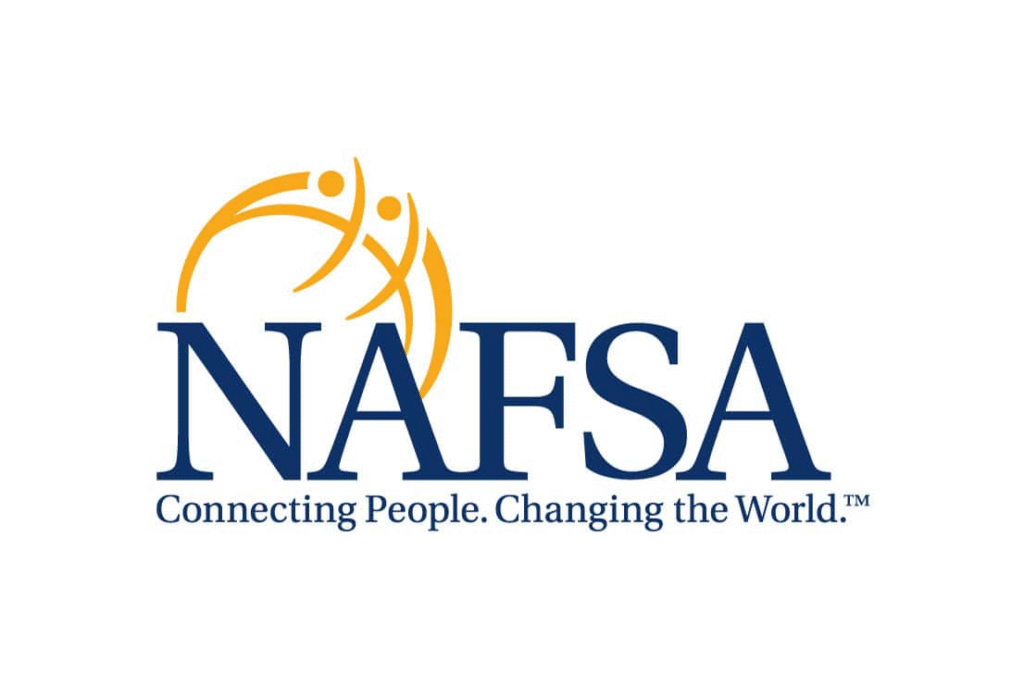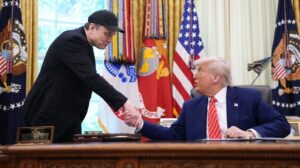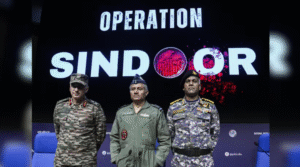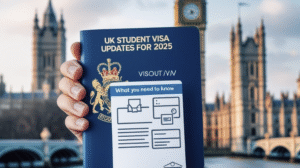The US has temporarily paused new student visa interviews to implement expanded social media screening. This move affects thousands of international students and has sparked concerns about delays and the US’s reputation as a destination for global talent.
Introduction
Imagine you’re a student halfway across the world, dreaming of studying at a top US university. You’ve aced your exams, secured admission, and now you’re ready to apply for your visa—only to find out that the US has hit pause on new student visa interviews. On May 27, 2025, the US State Department issued a directive to halt scheduling new interviews for student and exchange visitor visas (F, M, and J categories) as it gears up for stricter social media vetting. This decision has sent ripples through the international student community, universities, and advocacy groups. In this blog, we’ll break down the context, details, and what this means for students like you, all while keeping it engaging for both millennials and Gen Z.
Background and Context
International students are the lifeblood of US higher education, bringing diverse perspectives and serious economic clout. In the 2023-2024 academic year, over one million international students contributed nearly $44 billion to the US economy and supported over 378,000 jobs, according to NAFSA [1]. These students, hailing from over 200 countries, with China and India leading the pack, study everything from engineering to arts, enriching campuses and driving innovation.
To study in the US, international students need specific visas: F visas for academic programs, M visas for vocational studies, and J visas for exchange programs. The process involves applying through a US embassy or consulate, completing forms like the DS-160, and attending an interview to prove eligibility and intent to return home post-study. Since 2019, visa applicants have been required to provide social media handles as part of the vetting process, a policy introduced under the Trump administration to enhance security [2].
Recent years have seen shifts in visa policies, with the Trump administration focusing on stricter immigration controls. This latest pause is part of that trend, building on existing measures like social media screening, which was initially targeted at specific groups, such as students involved in campus protests.
Details of the Pause

On May 27, 2025, Secretary of State Marco Rubio signed a diplomatic cable instructing US embassies and consulates worldwide to stop scheduling new interviews for F, M, and J visas. The pause is temporary, aimed at preparing for an expansion of social media screening for all student visa applicants [3]. According to reports, the State Department plans to issue further guidance within days, but until then, no new interview slots will be added, and any unfilled appointments have been removed from embassy schedules [4].
Importantly, if you’ve already booked your visa interview, you’re in the clear—those appointments will go ahead as planned. The pause only affects new applicants, but the lack of clarity on how long it will last has left many students anxious. The move is tied to broader national security goals, with the administration citing the need to vet applicants more thoroughly, particularly through their social media activity. However, what exactly will be scrutinized whether it’s specific posts, affiliations, or something else—remains unclear [5].
Reactions and Implications

The pause has sparked a heated debate. NAFSA, a leading advocate for international education, has called the decision “misguided and deeply troubling.” Fanta Aw, NAFSA’s Executive Director and CEO, argued that international students are already the “most tracked and vetted” nonimmigrants in the US, and this pause is a “poor use of taxpayer dollars” that could damage the country’s reputation as a welcoming destination for global talent [1]. She emphasized that students are assets, not threats, contributing to innovation and economic growth.
Universities are also sounding the alarm. Many institutions, especially those like Harvard, rely heavily on international student tuition to balance their budgets. A prolonged pause could lead to delays in visa processing, pushing students to consider alternatives like the UK or Canada, which could cost US universities billions [6]. In 2023, the US issued over 446,000 F-1 visas, with India alone accounting for around 130,839 [7]. A drop in these numbers could hit higher education hard.
There’s also concern about a chilling effect on academic freedom. The expanded social media screening, particularly in the context of policies targeting universities with pro-Palestinian protests, raises questions about whether students’ online expressions could jeopardize their visa approvals [8]. On the flip side, supporters of the policy argue that enhanced vetting is crucial for national security, ensuring that only those who pose no threat enter the country.
Table 1: Economic Contribution of International Students to the US Economy
| Academic Year | Number of Students | Economic Contribution | Jobs Supported |
|---|---|---|---|
| 2023-2024 | >1,000,000 | $44 billion | 378,000 |
Conclusion
The temporary pause on new student visa interviews is a curveball for aspiring international students and US universities alike. While the goal is to bolster national security through expanded social media screening, the move risks creating delays, deterring talent, and straining university finances. For students with scheduled interviews, it’s business as usual, but new applicants face uncertainty. Keep an eye on updates from the US State Department and consider exploring other study destinations if needed. The US remains a top choice for global education, but this pause highlights the challenges of navigating an ever-changing visa landscape.
References
[1] NAFSA, “Pause of International Student Visa Interviews is Misguided and Self-Defeating,” May 28, 2025. [Online]. Available: https://www.nafsa.org/about/about-nafsa/pause-international-student-visa-interviews-misguided-and-self-defeating
[2] US Department of State, “Student Visa.” [Online]. Available: https://travel.state.gov/content/travel/en/us-visas/study/student-visa.html
[3] Politico, “Trump team pauses new student visa interviews as it weighs expanding social media vetting,” May 27, 2025. [Online]. Available: https://www.politico.com/news/2025/05/27/trump-team-orders-stop-to-new-student-visa-interviews-as-it-weighs-expanding-social-media-vetting-00370501
[4] NPR, “U.S. stops scheduling visa interviews for foreign students,” May 28, 2025. [Online]. Available: https://www.npr.org/2025/05/28/g-s1-69282/us-stops-visas-foreign-students
[5] Time, “Why the U.S. Is Pausing Student Visa Interviews at Embassies,” May 28, 2025. [Online]. Available: https://time.com/7289060/us-student-visa-interviews-paused-embassies-trump-social-media-vetting/
[6] Boundless, “Student Visas Paused: Who’s Affected and What Comes Next,” May 28, 2025. [Online]. Available: https://www.boundless.com/blog/us-student-visa-interview-pause/
[7] The Economic Times, “Indian students issued record number of student visas in the US,” March 15, 2024. [Online]. Available: https://economictimes.indiatimes.com/nri/study/indian-students-issued-record-number-of-student-visas-in-the-us-f-1-regulations-updated/articleshow/108513740.cms?from=mdr
[8] The Guardian, “Trump administration orders US embassies to stop student visa interviews,” May 27, 2025. [Online]. Available: https://www.theguardian.com/us-news/2025/may/27/international-student-visa-trump







